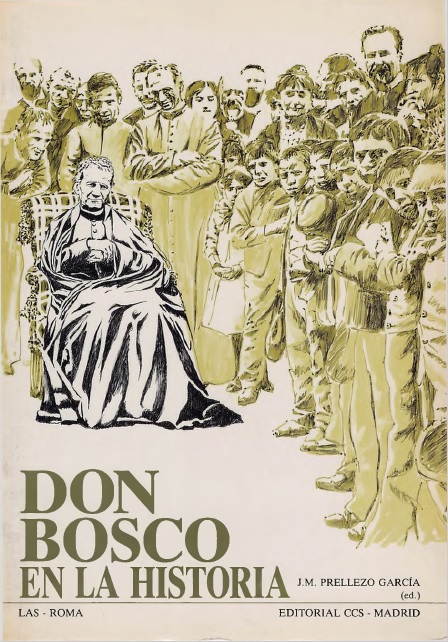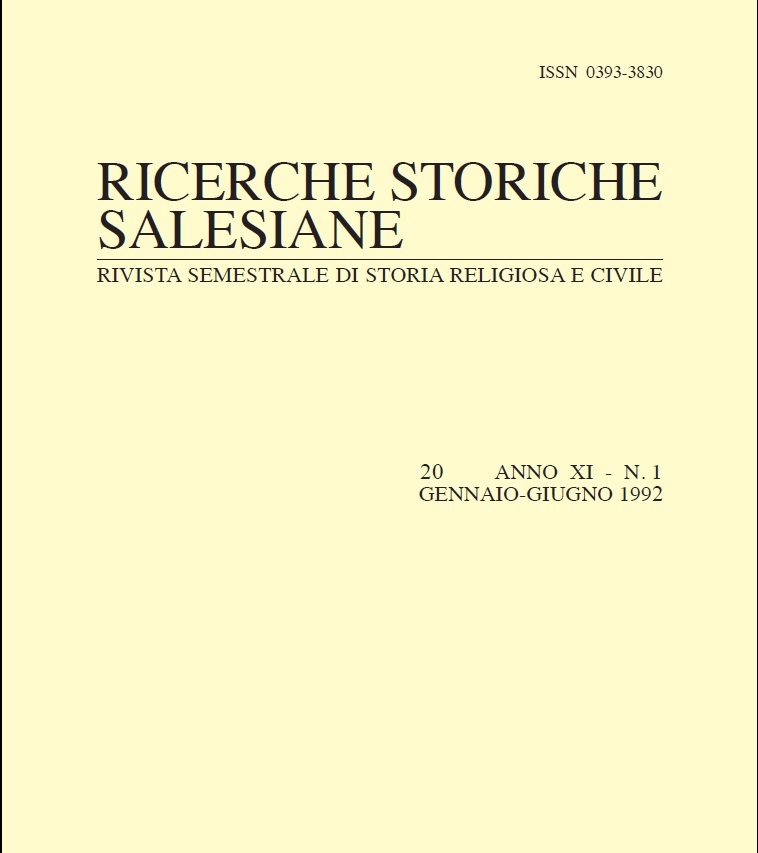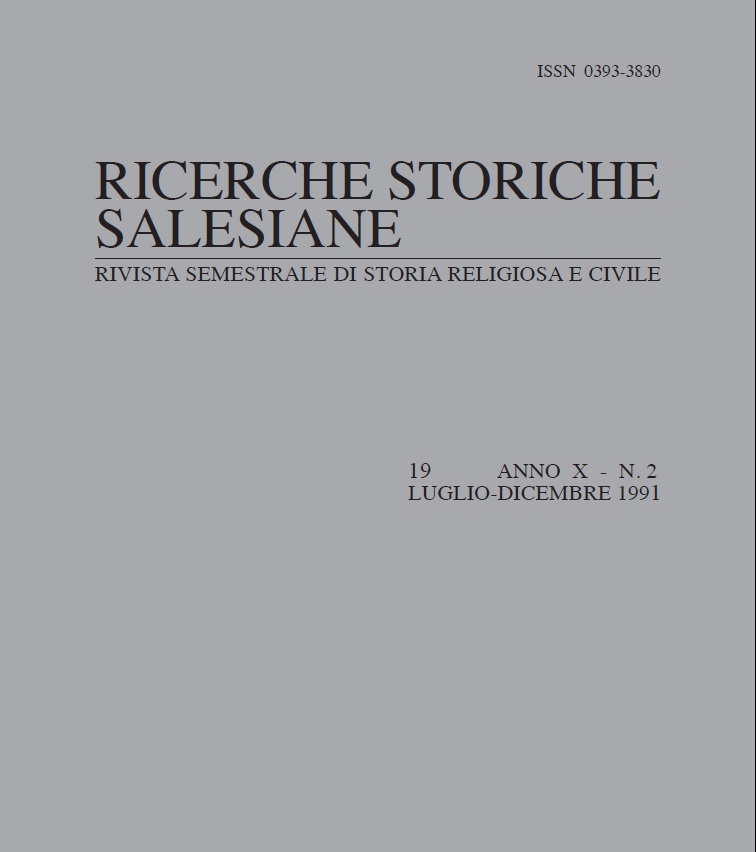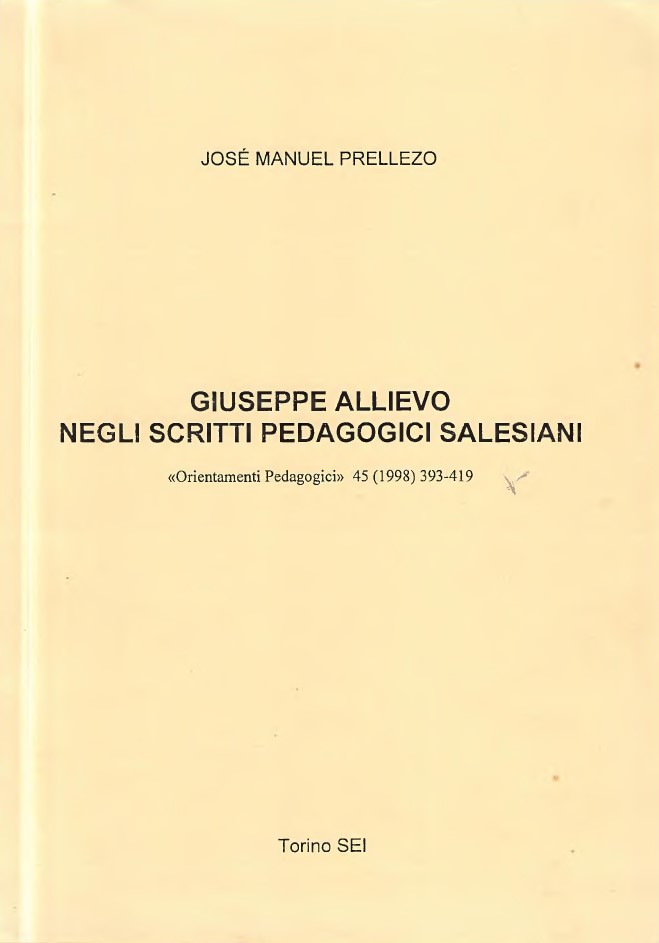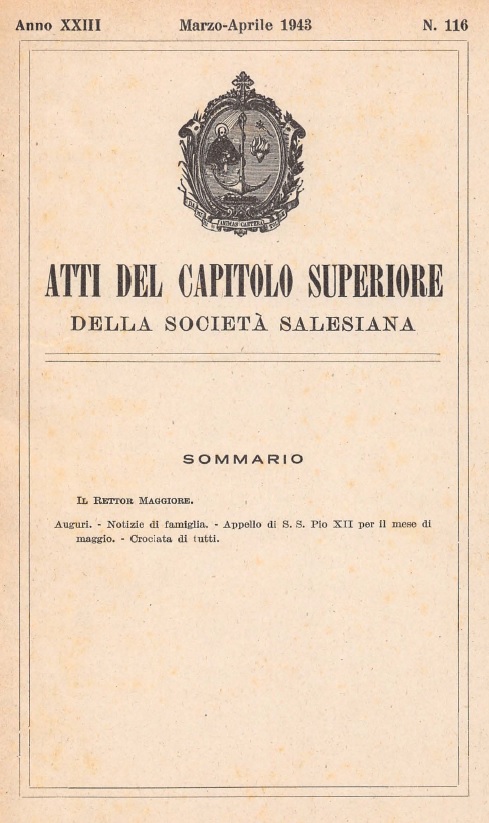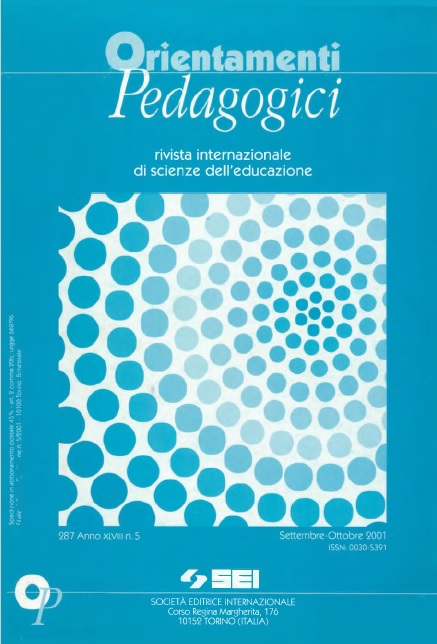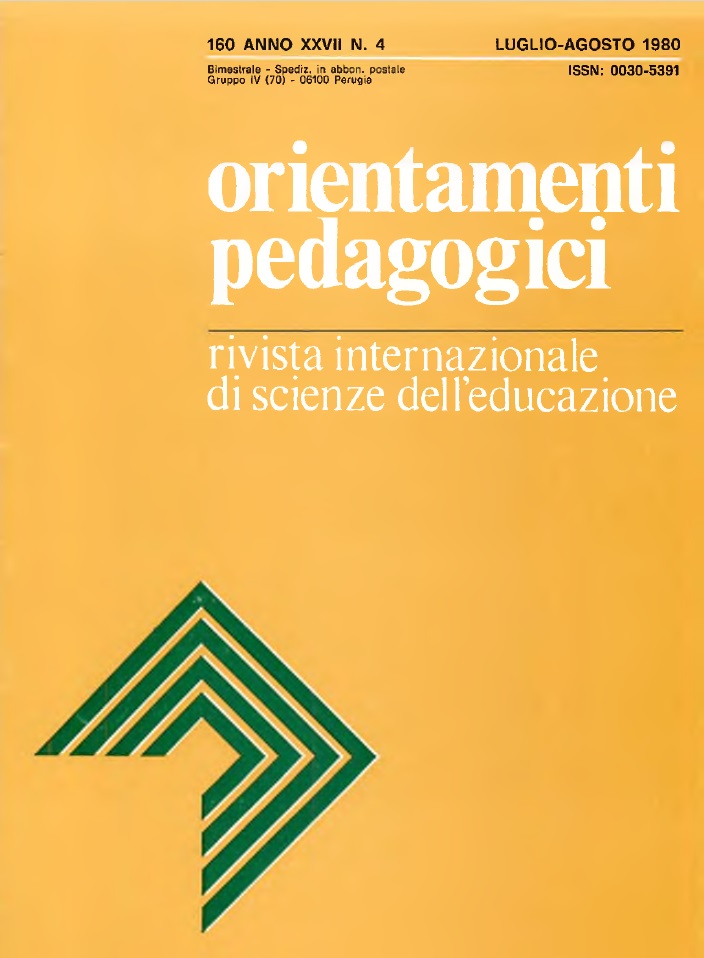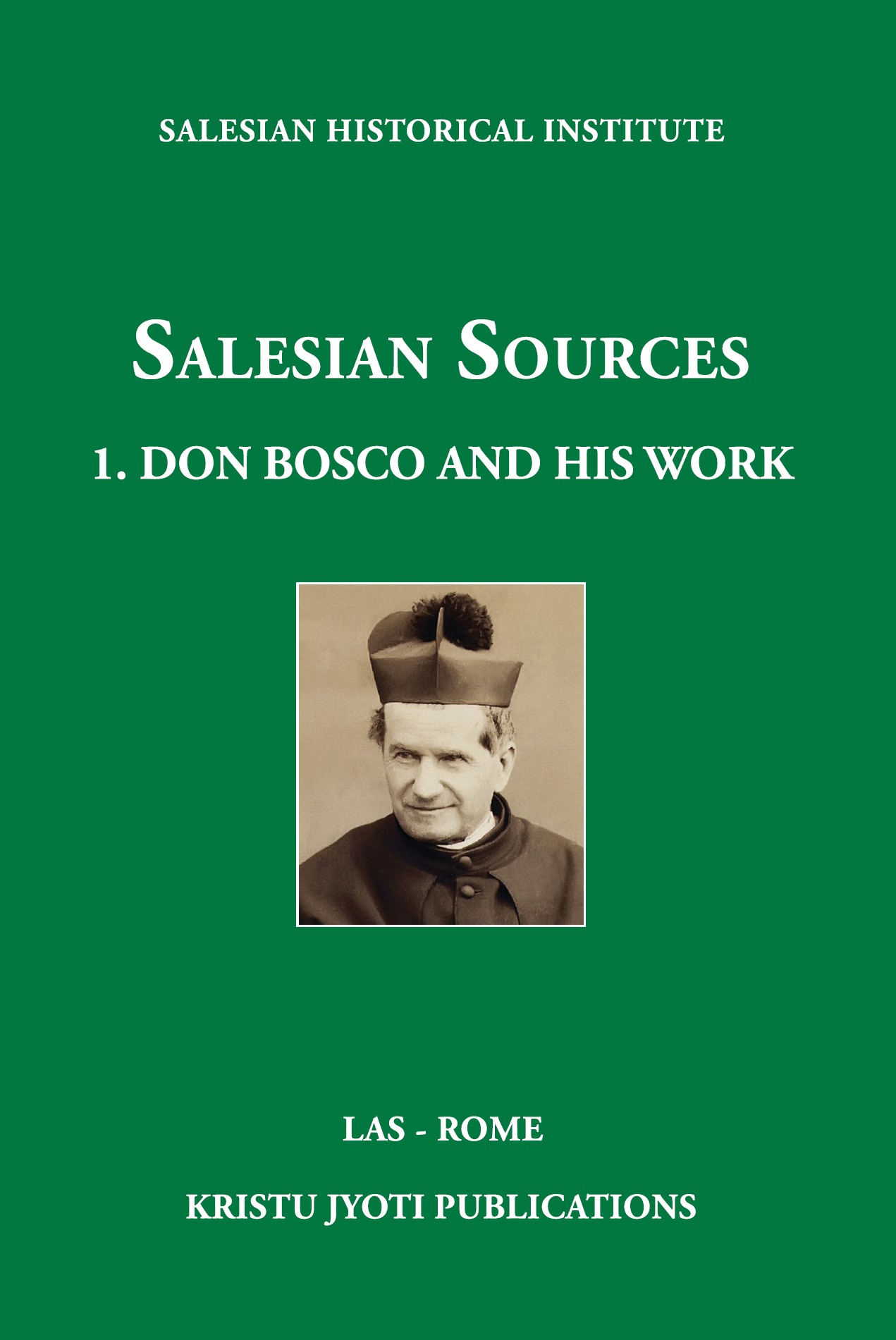Este artículo examina la importancia del epistolario de San Juan Bosco, considerándolo una valiosa fuente para comprender su vida y su obra.
Continue reading “Francesco Motto – “El epistolario como fuente de conocimiento y de estudio sobre Don Bosco. Proyecto de edición crítica” in “Don Bosco en la historia”. Actas del primer congreso internacional de estudios sobre San Juan Bosco”
